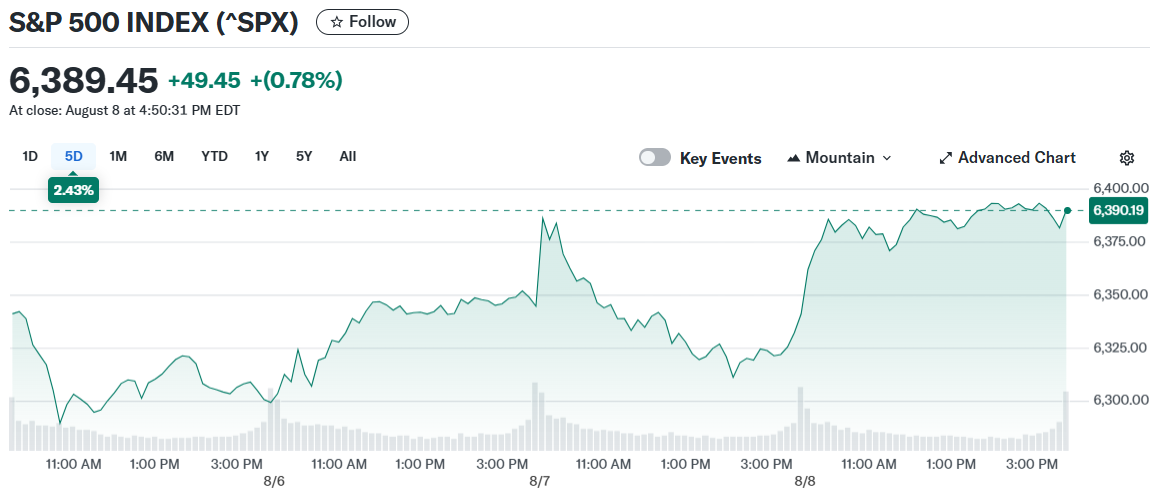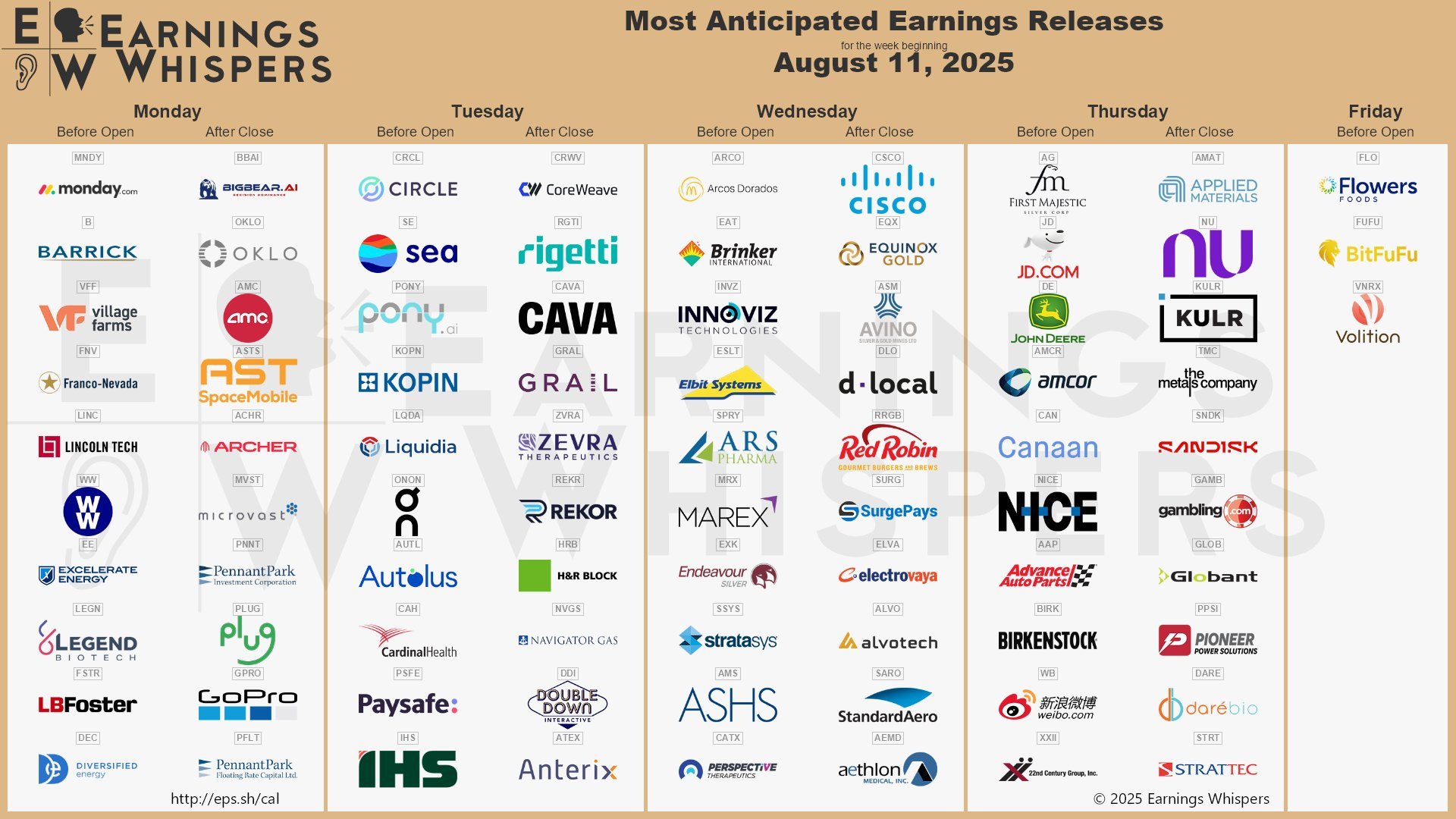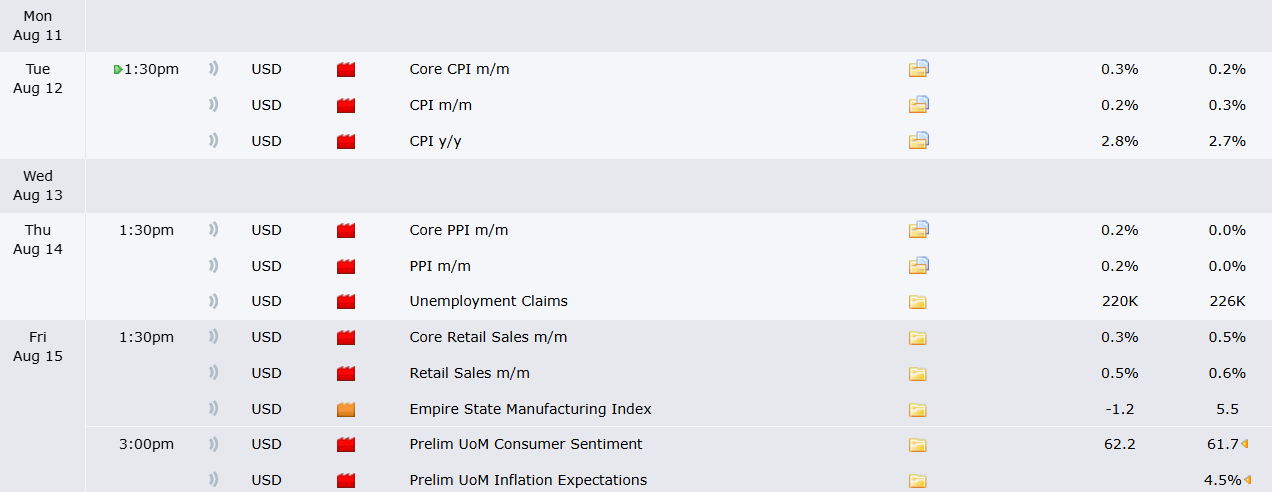TLDR
- July Consumer Price Index data releases Tuesday, with economists forecasting headline inflation to climb to 2.8% from 2.7%
- Fed officials increasingly support interest rate cuts following disappointing employment numbers, September meeting in focus
- Stephen Miran’s nomination to Fed Board could create multiple dissenting votes if rates stay unchanged
- Major tech companies including Cisco, CoreWeave, and Circle report earnings with focus on AI spending and crypto growth
- Friday retail sales figures expected to show 0.5% monthly growth, though auto sales may drive most gains
Federal Reserve policymakers face growing calls for interest rate reductions as critical inflation data approaches. Tuesday’s Consumer Price Index report for July will provide fresh evidence of price pressures, with economists anticipating headline inflation to reach 2.8% annually compared to June’s 2.7%.

The core inflation measure, stripping out volatile food and energy costs, is expected to accelerate to 3% year-over-year. This marks an increase from June’s 2.9% reading. On a monthly basis, core prices are projected to rise 0.3%, exceeding the prior month’s 0.2% gain.
Tariff policies implemented during Trump’s presidency continue influencing price trends across the economy. Economic analysts point to these trade measures as primary drivers behind the recent uptick in inflationary pressures affecting consumers nationwide.
Fed leadership has adopted a more dovish tone following weaker-than-expected labor market data. Three regional Fed presidents will deliver public remarks this week, potentially offering guidance on the central bank’s September policy deliberations.
President Trump’s selection of Stephen Miran for the Federal Reserve Board introduces additional complexity to monetary policy discussions. Miran currently leads the president’s Council of Economic Advisers and brings extensive economic policy experience to the potential role.
Wall Street economists suggest Miran’s appointment could amplify pressure for rate reductions. If confirmed before September’s meeting, his presence might result in multiple officials dissenting from any decision to maintain current rates.
Corporate Earnings Spotlight AI and Digital Assets
This week’s earnings calendar features several technology companies positioned at the intersection of artificial intelligence and digital currency markets. Cisco Systems delivers results Wednesday after recent quarters showed strong performance tied to AI infrastructure buildouts.

CoreWeave, the cloud computing partner of chip giant Nvidia, reports second-quarter numbers following its announcement of a massive Pennsylvania data center project. The $6 billion facility investment has already provided a boost to the company’s stock valuation.
Circle Internet Group presents results Tuesday as regulatory developments support the stablecoin sector. New federal legislation passed in July established clearer guidelines for digital currency operations, benefiting companies in this space.
The GENIUS Act provides a comprehensive regulatory framework for stablecoins, which maintain value by pegging to traditional currencies like the US dollar. This clarity has contributed to increased investor interest in related companies and their stock performance.
Additional earnings reports come from Applied Materials in the semiconductor equipment space, renewable energy company Oklo, heavy machinery maker Deere, and restaurant operator Cava. These diverse sectors will offer broader economic insights.
Consumer Activity Data Rounds Out Week
Friday’s retail sales report for July carries weight for understanding household spending patterns. Economists project a 0.5% monthly increase, representing a modest deceleration from June’s 0.6% advance.

Analysts caution that automobile purchases may account for most of the anticipated growth. The retail control group, which excludes cars and other volatile categories while feeding into economic growth calculations, may show weaker underlying trends.
This measure is expected to register just 0.1% growth, suggesting consumer spending outside of big-ticket items remains constrained. Such patterns could influence Federal Reserve thinking about economic momentum and policy needs.
Consumer confidence surveys for August will also provide perspective on household sentiment. The preliminary University of Michigan reading is forecast at 62.1, up from July’s 61.7 level but still reflecting cautious consumer attitudes.
Financial markets have already incorporated expectations for multiple rate reductions this year. Stock indices posted strong gains last week, with technology shares leading the advance amid continued optimism about artificial intelligence investments.
Circle reports quarterly results Tuesday as stablecoin regulations create new opportunities for digital currency companies in the evolving financial landscape.
Final Thoughts
As inflation data and economic indicators roll in this week, the Fed’s decision on rate cuts could hinge on conflicting signals from inflation, jobs, and consumer spending. With tech earnings in the spotlight and retail sales data due Friday, markets are bracing for crucial insights that could shape future policy moves.








